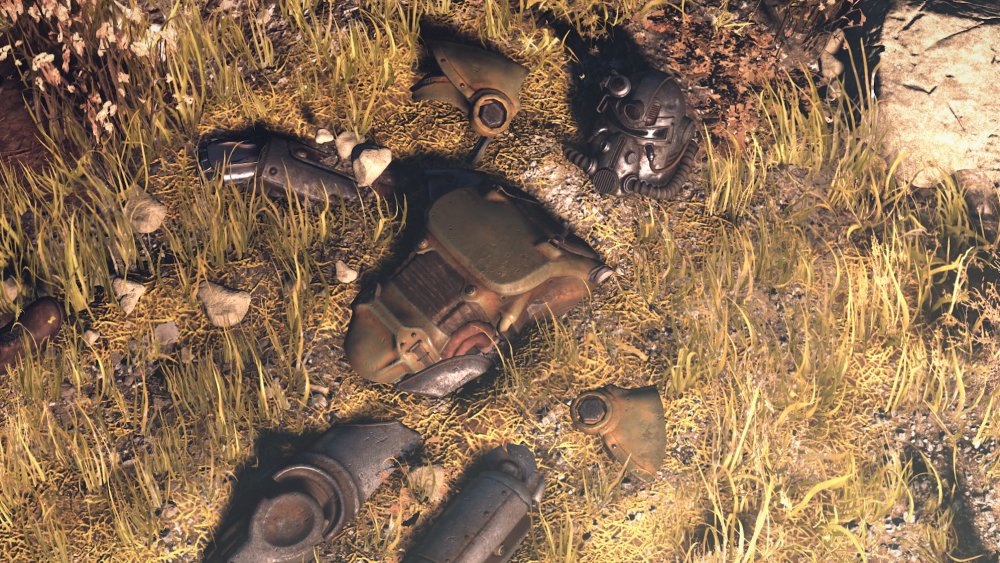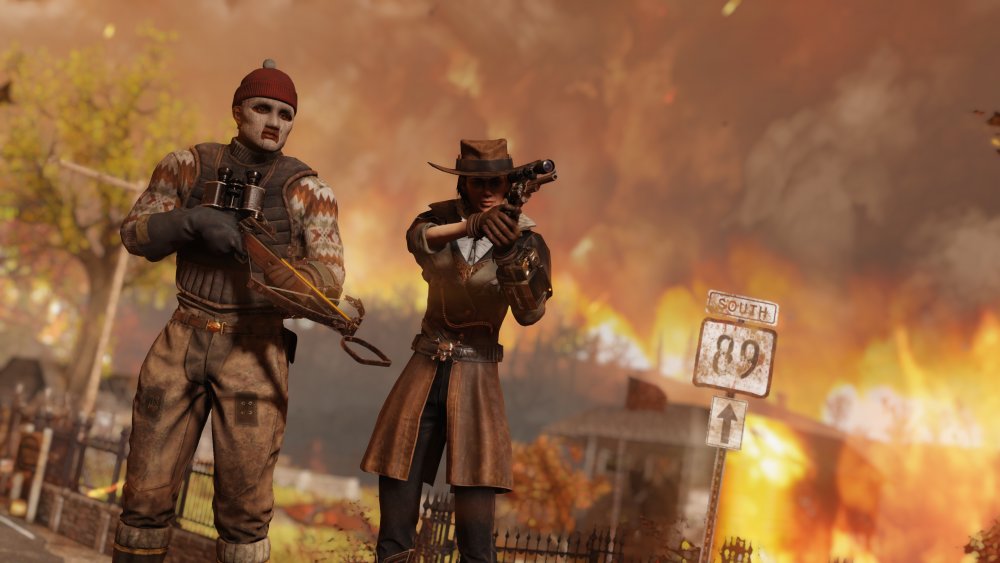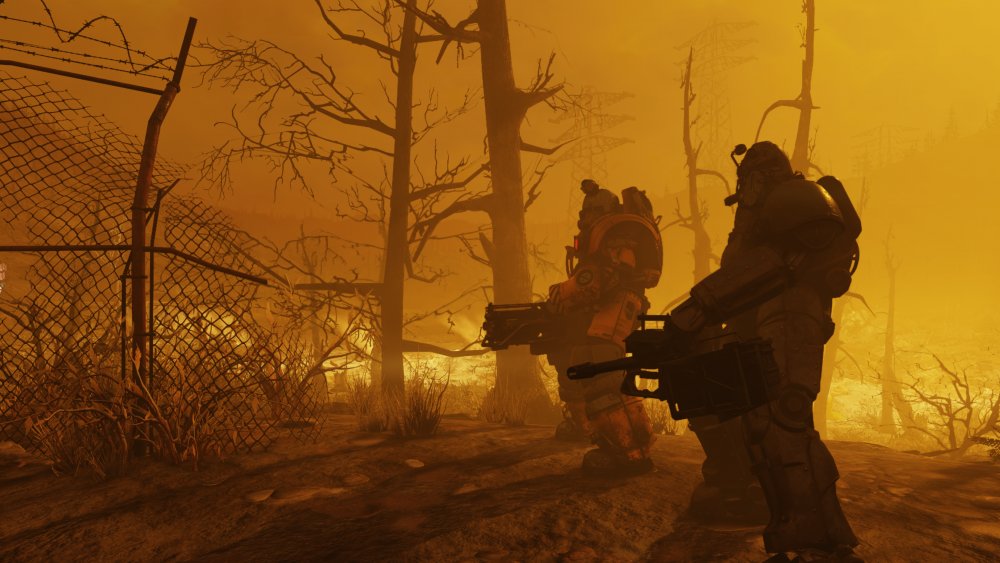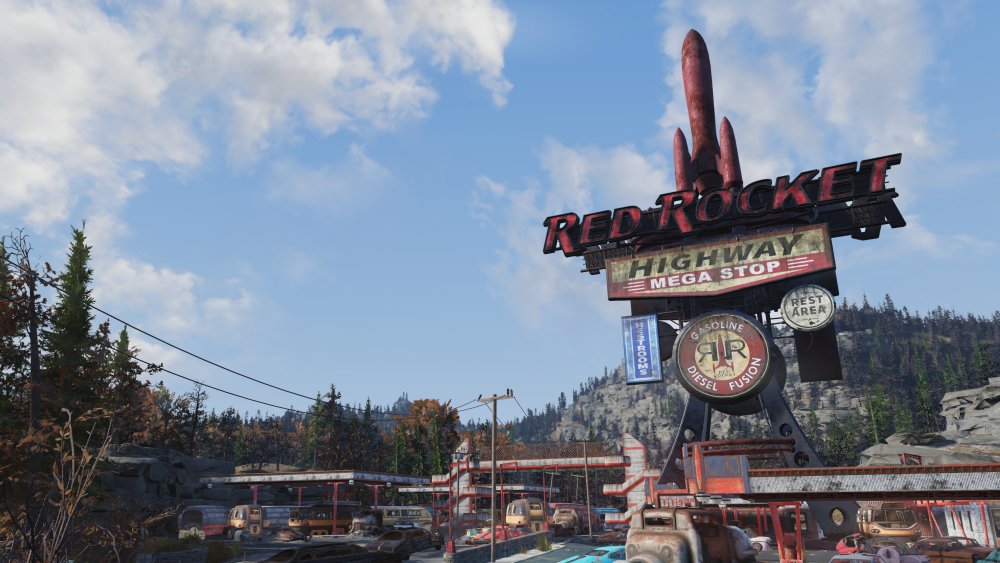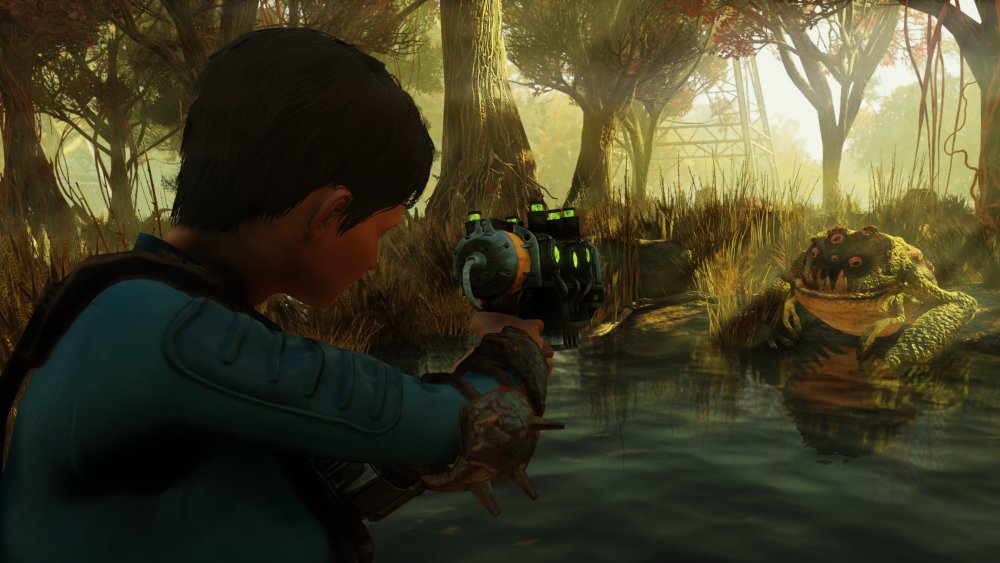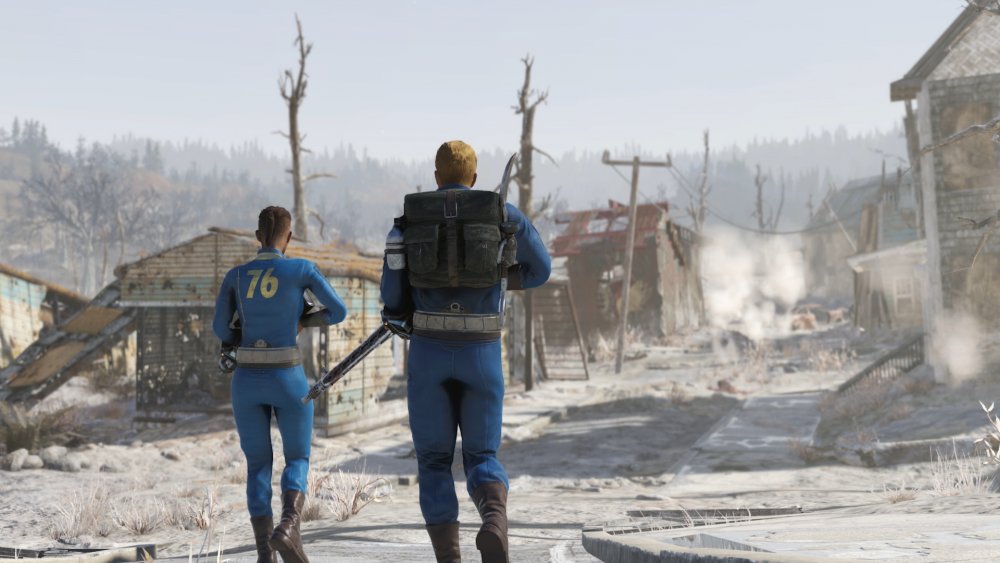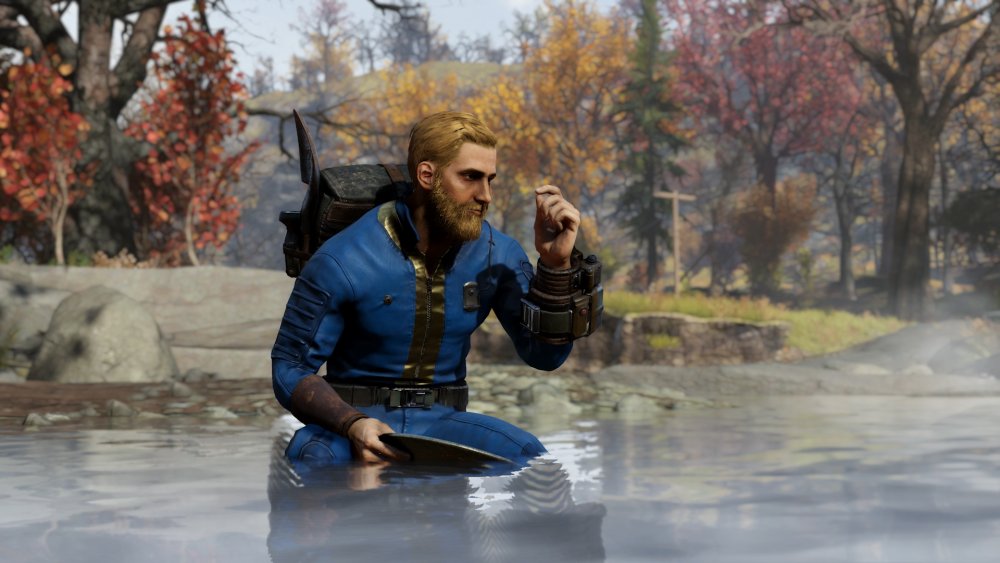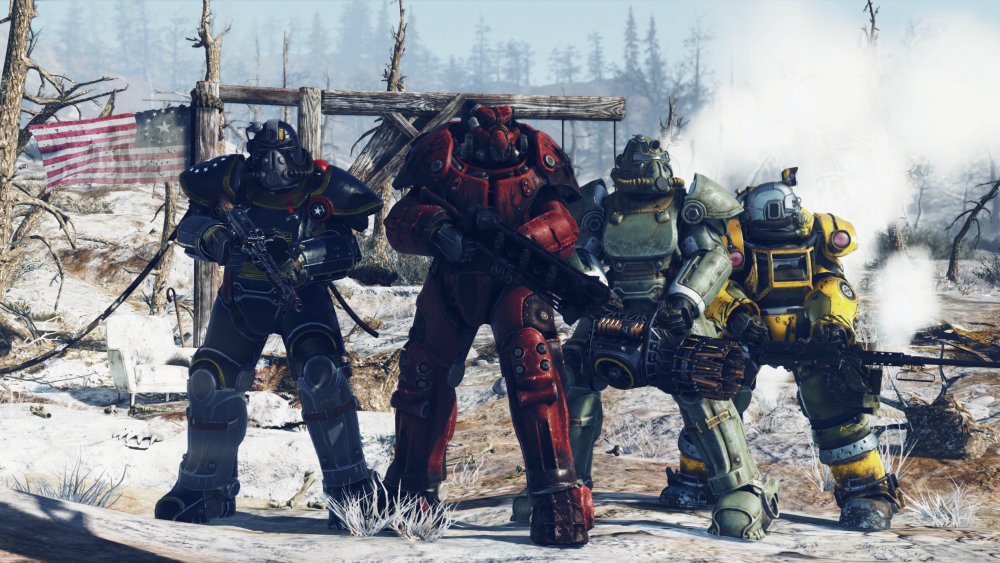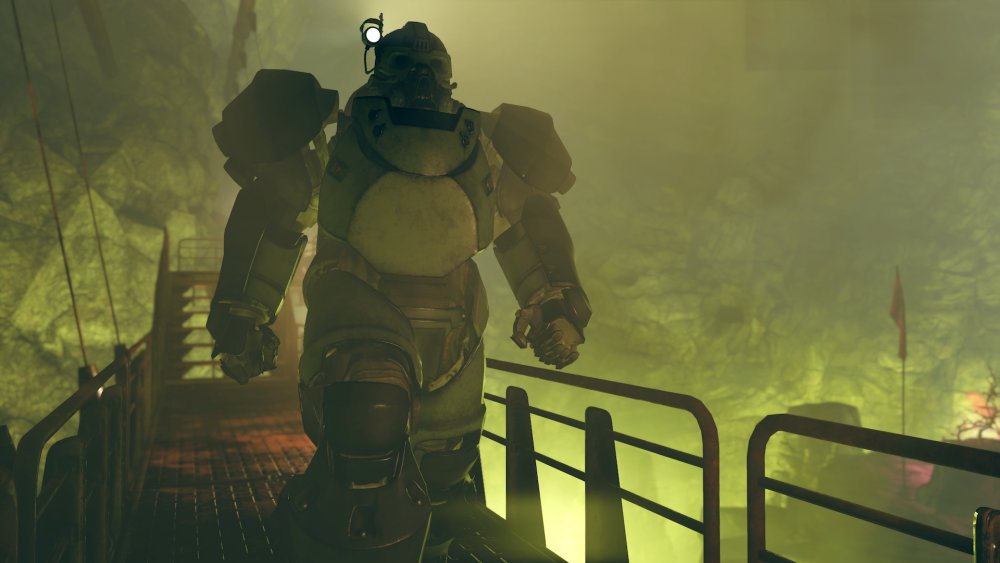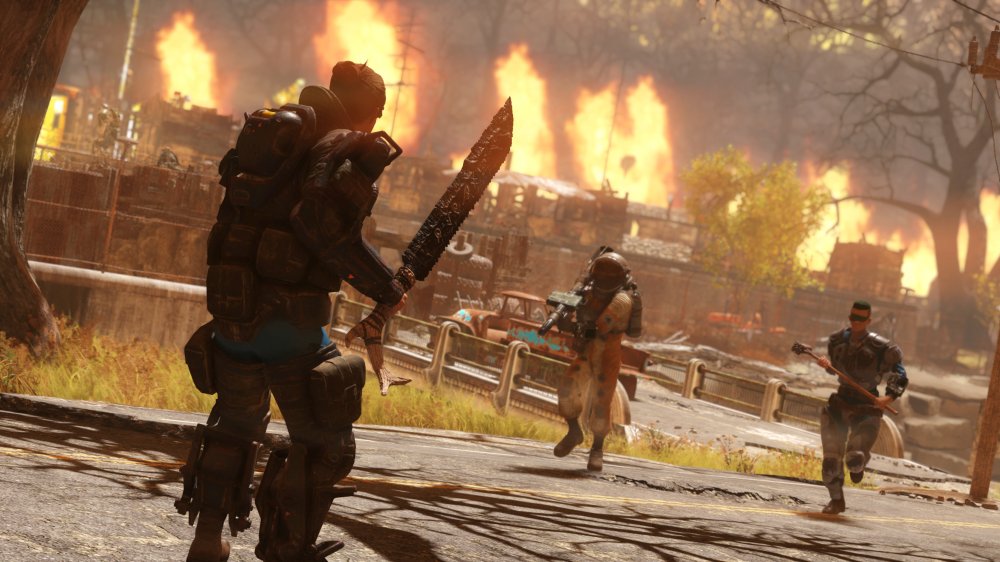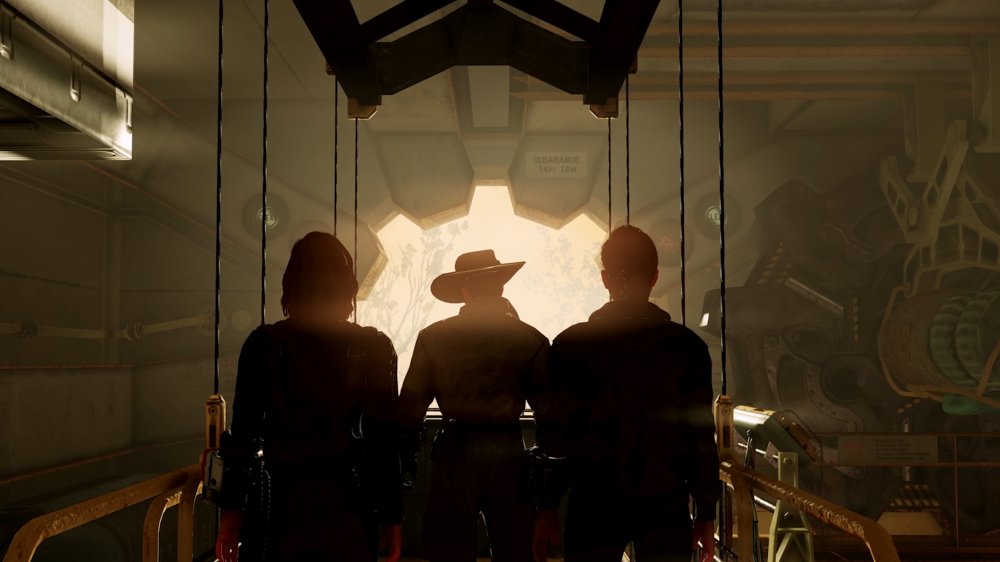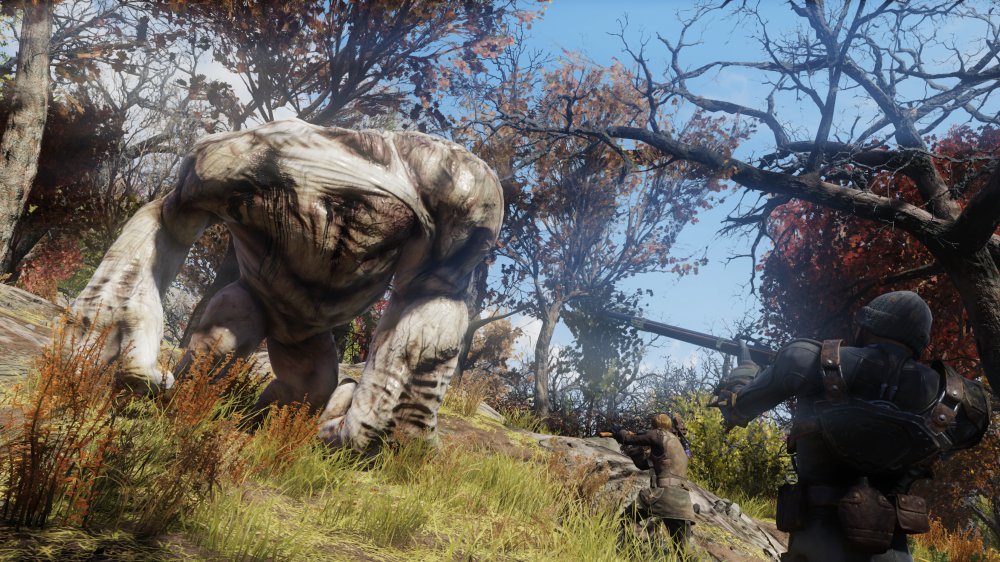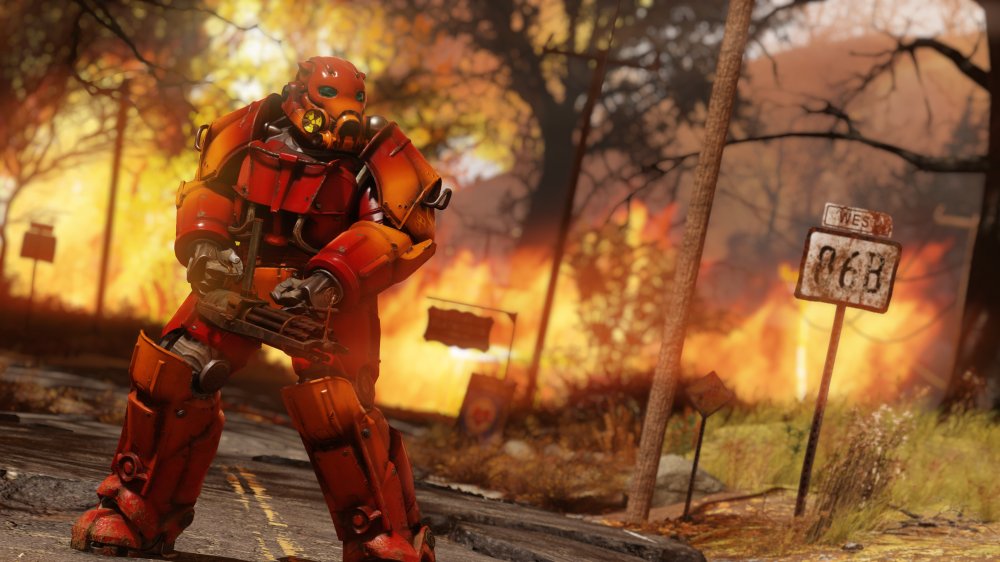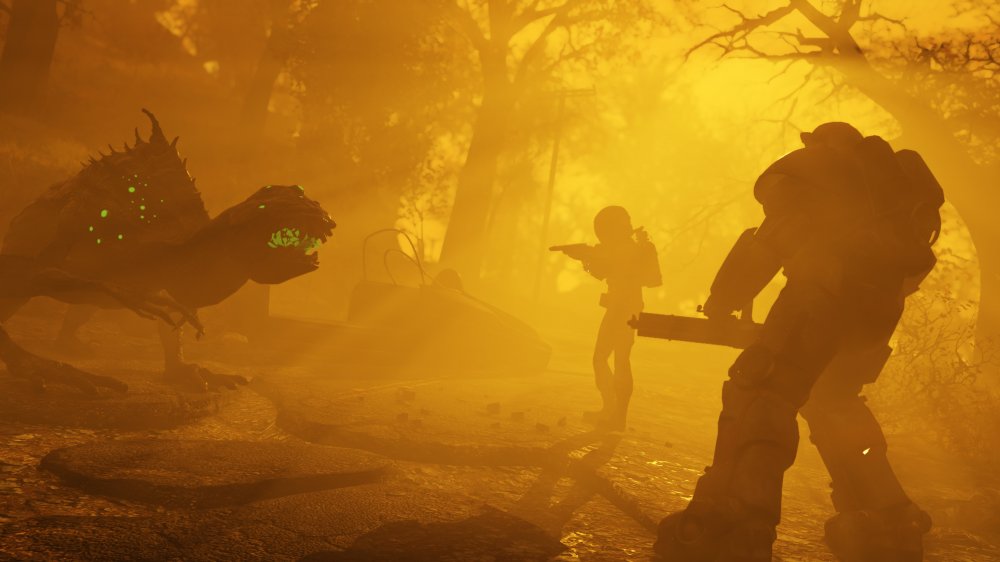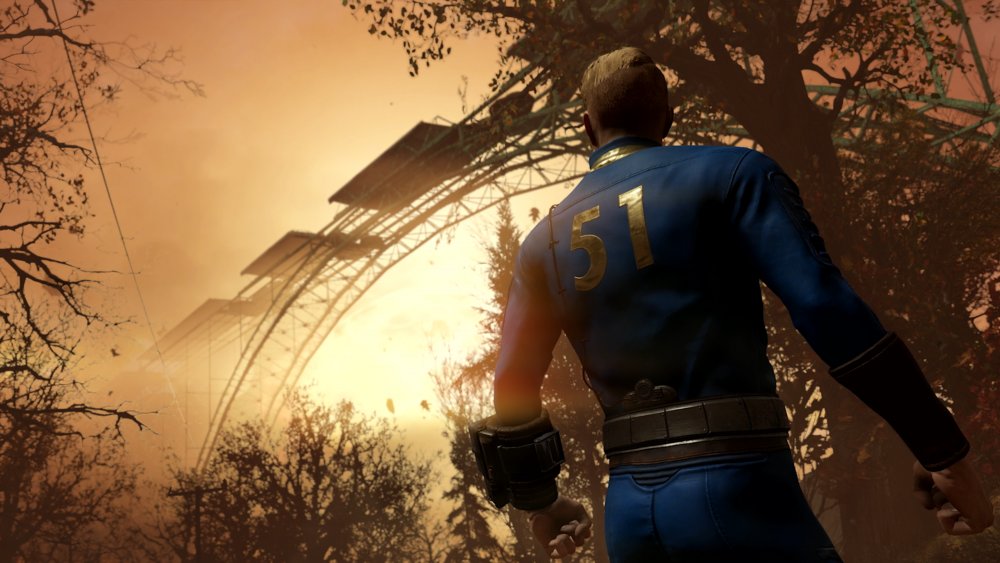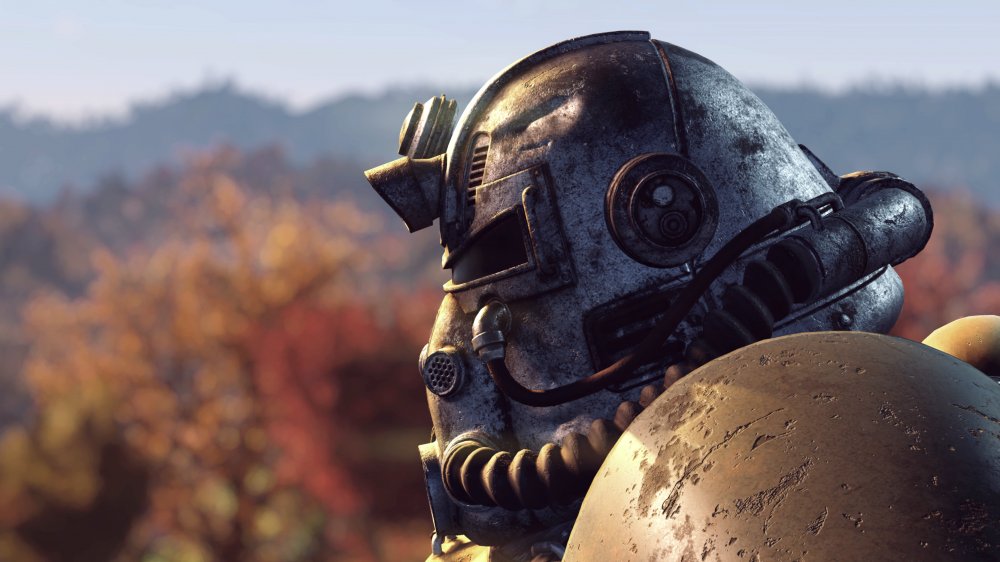Everything Wrong With Fallout 76
Most of us have fond memories with one Bethesda game or another. Whether it's roaming the capital wasteland of Fallout 3, fighting in the arena in The Elder Scrolls 4: Oblivion, or endlessly modding Skyrim, we all have something to be thankful for. Yet, Bethesda has been squandering that good will in recent months, and a lot of that can be attributed to Fallout 76.
The new twist on the Fallout formula left a lot of players expecting more, and that's the lightest way we can put it. Between the myriad bugs and lack of direction, Fallout 76 left a sour mark on the franchise and put a blemish on Bethesda's legacy. Now, instead of being remembered for releasing Skyrim on every platform known to humanity, the company instead evokes unfortunate memories of Fallout 1st.
Fallout 76 has been out for a bit, and the road since launch has been full of wrong turns. We know it's hard to keep up with all the bad things about the game, so we've gathered everything wrong with it right here.
Fallout 1st disrespects the consumer
No matter how you slice it, Fallout 1st was the last thing Fallout 76 needed. The new subscription service guarantees players a steady stream of premium currency, an infinite stash for scraps, and private servers, among other perks. This all costs $12.99 a month, or you can save yourself some money by paying an annual fee of $99.99.
This move, even to the most diehard Fallout 76 supporter, comes off as callous. Asking players to fork over an extra $13 a month for the sake of one game — after it's been out for a year — is insane. Consider: Xbox One and PlayStation 4 players already need to pay $60 a year just to play Fallout 76 (or any multiplayer game). Had the game been built from the ground up around a subscription, like Final Fantasy 14, this move wouldn't be as egregious. But overall, Fallout 1st is a terrible bargain. Players are better off dedicating that money to a properly supported MMO. Even better, put it toward a monthly subscription to Xbox Game Pass or PlayStation Now. Both are cheaper, and both offer far more gameplay value.
Fallout 1st created a class war
Of course, despite all the criticism levied toward Fallout 1st, some people bought into it. Different strokes for different folks, right? Everyone has the right to spend their money how they please, after all. For those who didn't, however, these subscribers have become targets of ridicule on public servers. Anyone sporting the Fallout 1st exclusive ranger armor, or anyone using any exclusive icons or emotes, isn't safe online.
It's gotten to the point where phrases like "eat the rich" and "76er peasants" are being thrown around. Fallout 1st subscribers have recounted stories of being harrassed, griefed, and even killed in-game. Meanwhile, some subscribers have expressed interest in building their own gated communities to keep the "peasants" out.
In other words, Bethesda created a class war in Fallout 76 thanks to its recent subscription service. The developers injected more toxicity into their online servers, making the already subpar playing experience even worse.
Fallout 1st has poor timing
In what might have been the first (and only) moment of positive public perception for Fallout 76, Bethesda announced the Wastelanders update at E3 2019. The update would add a lot of free content to the live-service game, chief among them being actual human NPCs. Some will be companions, while others will give you quests. The update would add an overarching story about the settlers and the raiders, two warring factions in Appalachia. Your choices would have consequences and shape the world around you. In other words, Wastelanders would make Fallout 76 more of a Fallout game.
Needless to say, fans were excited for the update. Unfortunately, in mid-October, Bethesda delayed the update to Q1 2020. To console the heartbroken fans, the company turned around and announced Fallout 1st. Talk about tone deaf.
To be fair, delays are simply part of the industry. Sure, they're disappointing, but more often than not, the developers have a good reason. However, announcing a money-grubbing subscription scheme hot off the heels of a delay showcases how little Bethesda cares about its Fallout 76 fans.
Bethesda wasn't 1st to its own website
When you think about it, the idea for Fallout 1st must have been discussed internally for months before the public knew. Thus, it would make sense for Bethesda to secure the Fallout 1st website as soon as possible. Looks like falloutfirst.com slipped their minds, though.
If you plan on visiting the site, we're warning you now: there's some strong language. Someone else secured falloutfirst.com and designed it in a way to vent their frustrations over Fallout 76, and that's putting it mildly. "As with everything we do for Fallout 76, we will continue to think of our bleeding bottom line first, ignore your feedback and improve the pay to win services over the months and years to come," the parody website reads. That's one of the few sentences without profanity, by the way.
Indiana native David Chapman started the website as a way to start a conversation about the awful business practice. As a fan of Fallout 76, he found this service to be the last straw, and he hopes his actions will lead to a better future for Bethesda.
Fallout 1st's private servers aren't private
It's hard to look past the scummy, business-oriented nature that inspired Fallout 1st. Yet, even discarding all that, the service isn't exactly proving itself worthy of your time or money. One of the first things the service promises is to ensure private servers for you and up to seven other friends. In other words, if you and a small squad wanted to wander Appalachia without running into other players, you could do that. Alternatively, if you wanted to turn Fallout 76 into a single-player game, you could do that too.
That sounds fine and dandy; too bad it doesn't work. When the service launched, players found that anyone on their friends list could join their private server, invited or not. Doesn't seem so private anymore, does it? The only way to ensure a server to yourself is to play it with seven other friends.
Furthermore, people have found that these "new" worlds in private servers aren't quite new. Dead NPCs litter some of the landscapes, while settlements have already been looted. In other words, it seems like you're playing in someone else's used world rather than your own.
Bethesda's stash limit justification has holes
Ever since the pre-release beta, the stash limit has been a point of contention for Fallout 76 players. On launch, players could only stash away up to a weight limit of 400. A patch came out in December 2018 that increased the limit to 600, although Bethesda was nervous about it, citing possible server performance problems. Nonetheless, the boost didn't seem to hurt the servers. In February 2019, the developers released another patch that bumped the limit up to a generous 800.
This gradual increase in the stash limit came from alleged concerns about server performance. Bethesda was slowly testing the waters, supposedly. However, now that a subscription service is involved, those concerns seem to be thrown out the window. Fallout 1st payers get a scrap box that holds unlimited scrap. Suddenly, the idea of crashing a server by putting too many virtual items into a box seems ridiculous. So what's stopping Bethesda from giving players unlimited stashes? Money, apparently.
Fallout 1st's infinite scrap box broke anyway
Scrap plays a fairly important role in Fallout 76. You can turn any junk into scrap, and then that scrap can be used at crafting stations or when building stuff for your CAMP. To put it simply, you can never have too much scrap. The Fallout 1st subscription takes that to the next level by making the scrap box hold infinite scrap.
Unfortunately, much like many other parts of Fallout 1st, this infinite scrap box seems broken. Players have reported that the box doesn't actually keep any scrap. Once some was put into the box, players couldn't seem to find any of it. Logging off and back on didn't fix it. Instead, hard-working players just lost hundreds if not thousands of scrap units, which represented hours and hours of gameplay.
They lost all of it because they paid Bethesda even more money at the promise of "better" features. Fallout 1st didn't have much going for it, but this news didn't do the developers any favors.
Bethesda added microtransactions to a $60 game
The problems in Fallout 76 run deep, and perhaps one of the most egregious additions to it is the Atomic Shop. In this menu, players can buy items using an in-game currency called Atoms. You can earn Atoms by completing certain challenges in the game, and some of them refresh every day and week. That hasn't stopped Bethesda from implementing a system that lets you pay for Atoms, though, turning it into a premium currency.
Most of the items are cosmetic, ranging from skins to emotes. The Atomic Shop also sells various CAMP objects. Keep in mind, however, that Fallout 76 is a full-priced game. To play it at all, you need to fork over $60 (although we're sure you can find some deep discounts). On top of that entry price, Bethesda plans to nickel and dime you with extra microtransactions. Fallout 1st simply makes matters worse, asking players to pay even more. The subscription includes a monthly care package of Atoms, too, encouraging players to keep shelling out that moolah.
Bethesda proves it can't be trusted
Time and again, Bethesda has broken its seal of trust with consumers. When it initially implemented the Atomic Shop in Fallout 76, we were assured players could only buy cosmetics from it. People feared that one day, that statement wouldn't be true. Yet, Bethesda Senor Vice President Pete Hines doubled down on the message via Twitter. He responded to fans and said, "All the dlc/new content will be free."
Unfortunately, that only remained true for about eight months. In April 2019, Bethesda added repair kits to the Atomic Shop, which repaired gear without using any scrap. Three months later, scrap kits joined the shop's inventory. These items automatically scrapped your junk and put it in your stash, saving you time.
Then in September 2019, Bethesda added a refrigerator and a scrap collecting robot to the Atomic Shop. These CAMP upgrades would preserve your food and generate free scrap for you, but the only way to get them is by spending Atoms. Over the span of a year, the lies started to unravel. These items clearly went beyond just cosmetics, yet Bethesda charged money for them.
Bethesda hastily bans its own fans
Picture this: You found an online game that clicks with you. You enjoy playing it both with your friends and on your own, and it becomes something you regularly look forward to. Before you realize it, you've logged more than 900 hours of play time in the game — that's more than 37 days! By most measures, you could be considered a superfan. The last thing you'd expect is for the developer to ban you out of the blue, right?
Well, Bethesda does like its surprises, and this actually happened with a Fallout 76 player, believe it or not. Reddit user Glorf12 claims that Bethesda banned him from servers because he simply gathered way too much ammo. The developers couldn't believe anyone would have that much ammo, so they banned the player without investigating much further. Instead of greeting a prospective superfan, they banned the account, assuming a human wouldn't subject themselves to 900 hours of Fallout 76 — which, honestly, is a fair assumption.
Bethesda literally didn't deliver
When Fallout 76 was announced, Bethesda also revealed a $200 special edition that promised a steelbook, a map, a wearable power armor helmet, and a canvas bag, among a few other goodies. When people got ahold of these special editions, they found that the bags were made of nylon instead of canvas. Bethesda cited unavailable materials as the reason they couldn't deliver, and as reparations, it offered all disappointed customers 500 Atoms. That's a measly $5, in case you didn't know.
Of course, people wanted Bethesda to deliver on its promise, so the company moved toward making those canvas bags. Finally, in June 2019, consumers got their bags in the mail. It took eight months for Bethesda to secure enough valuable canvas to produce these bags and send them out. From the start, the company had been lying to prospective customers, and it took its sweet time to make up for those mistakes.
Fallout 76 is straight-up buggy
By now, you've probably read all sorts of bad stories about Fallout 76. Bethesda has treated its fans poorly, to say the least, and almost every update makes you scratch your head more than anything else. Lest we forget, though, the game itself — regardless of patches, microtransactions, and subscriptions — is extremely buggy. Nothing "just works," much to Todd Howard's dismay.
The bugs are so prevalent that Reddit users have banded together to report all of them. On launch, a thread created by SirSaltie compiled so many bugs that the list had to be broken into nine subcategories. Some quests couldn't be finished, items didn't interact with the environment properly, and friends lists could completely break.
Considering Fallout 76 continues to receive patches, you'd think these issues would resolve themselves over time, right? Well, Bethesda continues to go against the current here. Most new updates have broken one thing or another. A patch in July 2019 turned an area into a death pit for players and seemingly bugged legendary drop rates.
Fallout 76 servers crash easily
One thing Fallout 76 did to the franchise was trivialize the nuke. Previously, nukes were terrifying things, but now, they're just part of the endgame. Players would work together to launch these weapons of mass destruction. After the mushroom cloud dissipates, the area becomes a blast zone, containing radiation and higher quality loot.
When detonated over a Fissure Site, the blast zone spawns high-level enemies, including a level 95 Scorchedbeast Queen. Killing it results in some rare drops, which really is the bread and butter of any endgame. To be more efficient though, some players tried launching three nukes at the same time. After all, if they could handle the heat, why not be thrice as productive?
Unfortunately, Bethesda's servers couldn't handle three simultaneous nuclear blasts. This crashed the server, booting those players back to the main menu. In other words, a mechanic that Bethesda encourages players to use ended up destroying its own servers. You'd think the company would have enough resources to ensure this wouldn't be an issue.
Bethesda didn't plan for Y2K19
Funnily enough, nukes seem to be the source of many problems for Fallout 76, but not for the reasons you might think. After launch, players had fun setting off all sorts of nukes and farming the blast zones. After all, there isn't much else to do in the endgame.
But then 2019 rolled around. All of a sudden, players were unable to complete the nuke quest. When they reached the silos containing the nukes, they found that the doors remained locked for another 9,999 hours. Players couldn't find launch codes anymore, and certain nuke-related monitors were glitched.
Bethesda promptly took down the servers to fix this issue. It wouldn't say what caused this problem, but many suspect this happened due to a programming error. People speculate that for one reason or another, the code couldn't process the fact that the date ended in 2019 instead of 2018. That hasn't been officially confirmed by Bethesda, but its silence on the matter speaks volumes.
Fallout 76 just isn't Fallout
At the end of the day, Fallout 76 has a myriad problems, many of which reflect some of the industry's most awful practices. The worst thing about it all, though, is that Fallout 76 is so blatantly not a Fallout game. When you look back on 3 and 4, both had vibrant worlds full of life and interesting places. NPCs had stories to tell, and your choices affected the narrative (to some extent).
Ironically, despite introducing real-life players to the world, Fallout 76 features a dearth of character. It's lifeless and devoid of any charm. The Wastelanders update generated the most positive buzz about the game in its first year, and even that took a backseat to Fallout 1st, a subscription service that scavenges every last cap from players' wallets. No matter how you slice it, Fallout 76 won't scratch the same itch that 3 or 4 did, because it lost sight of what makes Fallout fun in the first place.
War may never change, but Bethesda certainly does.

